Embarking on a wellness transformation, including finally achieving a healthy and sustainable weight loss, can feel like climbing a mountain. But what if the barriers in your way aren’t external? What if they’re internal habits and mindsets you’ve unknowingly nurtured?
We’ve all been there—myself included.
Many people fall into common traps that sabotage their weight loss efforts, but the good news is that recognizing them is the first step to overcoming them. Let’s explore four key ways you might be holding yourself back—and how to break free.
1. Focusing Solely on Behavior Without Addressing Your Mindset
One of the most common pitfalls in weight loss is focusing only on behavior—restricting calories, exercising more, or jumping from one trending diet to another—while ignoring the emotional and mental side of the journey. If you rely solely on willpower without addressing deeper emotions or beliefs, success is often short-lived.
Why? Because if a diet feels like deprivation, it’s unlikely that losing weight will magically make those feelings disappear. Instead, you have to reframe how you see food and your relationship with it.
For instance, just as you wouldn’t feel deprived of not drinking bleach because you know it’s harmful, you need to view highly processed, unhealthy foods in the same way. This mental shift is what creates lasting change.
The statistics around long-term weight loss success are daunting, with many people regaining the weight they lose. But those who take the time to work on their mindset—redefining what food means and addressing emotional triggers—are far more likely to achieve and maintain their goals.
2. Not Understanding How Your Brain Works
To transform your health, you have to first understand how your brain evolved and why it drives your cravings. For millennia, humans lived in environments where food was scarce.
Our brains adapted by rewarding us with dopamine—a feel-good chemical—when we ate calorie-dense foods. This survival mechanism ensured we sought out high-energy foods to stay alive.
Fast-forward to today, and our modern food environment is flooded with hyper-palatable, calorie-dense options like pizza, ice cream, and chips. These foods hijack the brain’s reward system, producing dopamine spikes similar to what occurs in drug addiction.
Even thinking about these foods can trigger cravings because your brain remembers the intense reward they provide.
The key is to recognize that your cravings are not a personal failure—they’re a natural response to an overstimulating food environment. By understanding this, you can start to reclaim control.
3. Allowing Hyper-Palatable Foods in Your Environment
Another way people inadvertently sabotage their weight loss is by keeping hyper-palatable “junk” foods in their homes or workplaces. Until you’ve done the mental work to see these foods as harmful rather than tempting, having them within reach can create a constant cycle of cravings and overindulgence.
Your brain remembers the dopamine hit it received from these foods in the past and will continue to send you craving signals, believing it’s helping you survive. By eliminating these foods from your environment, you remove the temptation and give yourself a fighting chance.
Once you’ve reframed your mindset and no longer see these foods as rewards, their presence won’t have the same power over you. But until then, out of sight truly is out of mind.
4. Beating Yourself Up When You “Fall Off” a Diet
Perhaps the most damaging way people get in their own way is through self-criticism. When you slip up on a diet, it’s easy to spiral into negative self-talk, telling yourself you lack willpower or that you’re not disciplined enough.
This creates what’s known as the shame cycle: feeling bad about yourself leads to seeking comfort, often through food, which restarts the cycle.
Here’s the truth: your willpower is not the problem.
The issue lies in unrealistic diets, a lack of understanding about how your brain works, and environments filled with temptation. Instead of beating yourself up, approach setbacks with curiosity and compassion.
Ask yourself questions like:
- Was the plan I was following sustainable?
- What emotions or triggers led to my choices?
- Were there hyper-palatable foods in my environment that made it harder to resist?
By treating setbacks as opportunities to learn rather than failures, you can adjust your approach and avoid the shame cycle altogether.
Breaking Free and Creating Lasting Change
Achieving sustainable weight loss isn’t about superhuman willpower or following the perfect diet. It’s about working with your brain, not against it. Start by:
- Shifting Your Mindset: View unhealthy foods as harmful rather than indulgent.
- Understanding Your Brain: Recognize that cravings are a natural response to calorie-dense foods, not a personal weakness.
- Eliminating Temptations: Remove junk food from your environment to reduce cravings.
- Practicing Self-Compassion: Replace self-criticism with curiosity and a willingness to learn from setbacks.
Listen, there’s nothing wrong with you—as frustrating as it can be, your brain is doing what it was designed to do.
The key to long-term success is rewiring your mindset, working with your natural instincts, and building an environment that supports your goals. With these tools, you can not only achieve your weight loss goals but also transform your overall wellness.
Remember, this is a journey, not a sprint. Be patient with yourself, show yourself grace, and celebrate progress—no matter how small. Each step forward is a step toward a healthier, more empowered you.
Need some help better understanding how your brain works in terms of tackling your wellness goals? I can help. Click here to learn about my transformational wellness program.
For more on subconscious barriers to weight loss and wellness goals, listen to my episode of the Get Out of Your Own Way podcast below.
While you’re at it, I think you’ll find some of these other blog posts helpful:
- Health and Wellness Reads to Transform Your Personal Journey
- Common Health Myths Debunked: Separating Fact from Fiction
- Wellness Author Reveals Subconscious Thoughts That Are Keeping You Fat and Sick
Save for later—Pin This Post!
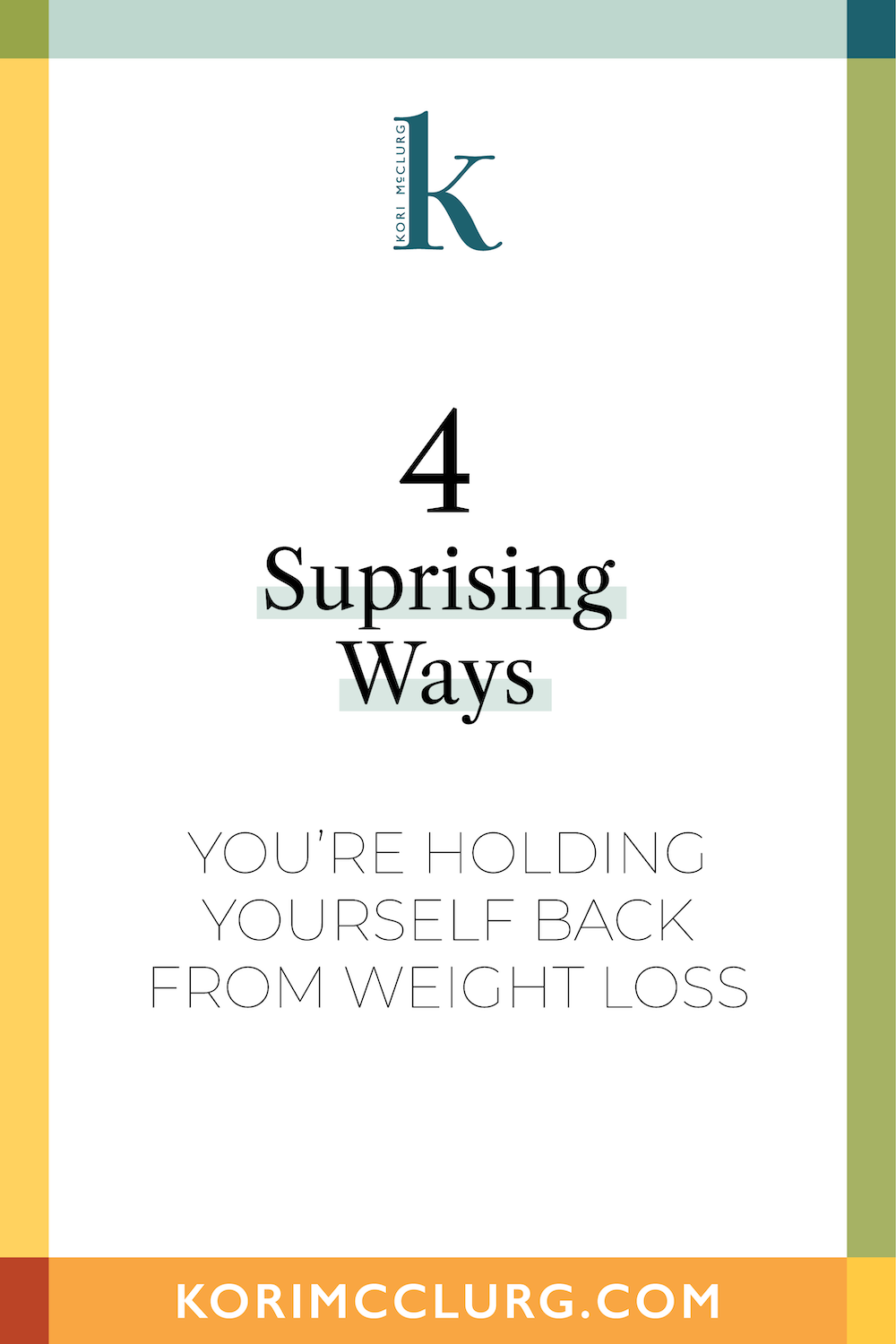
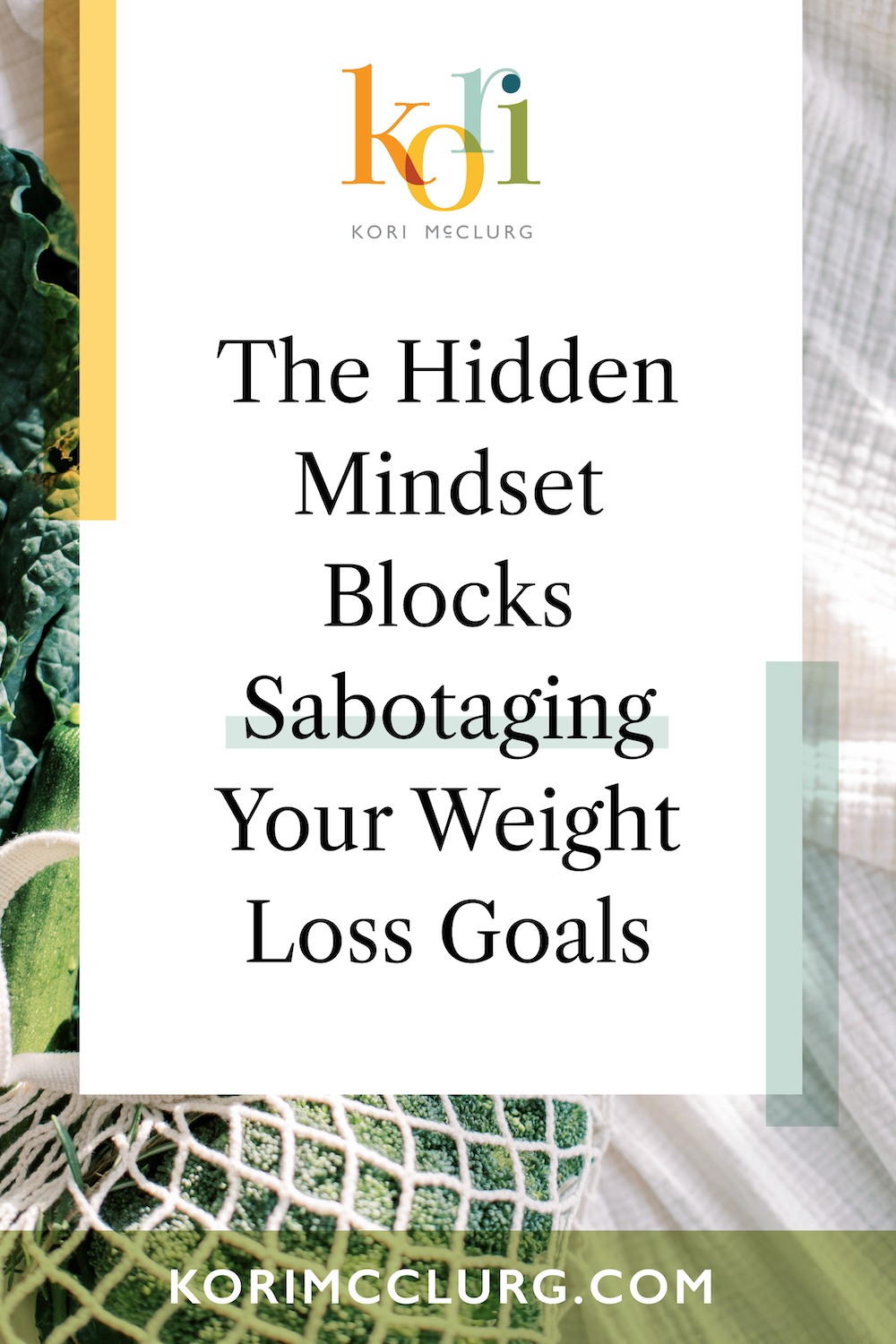
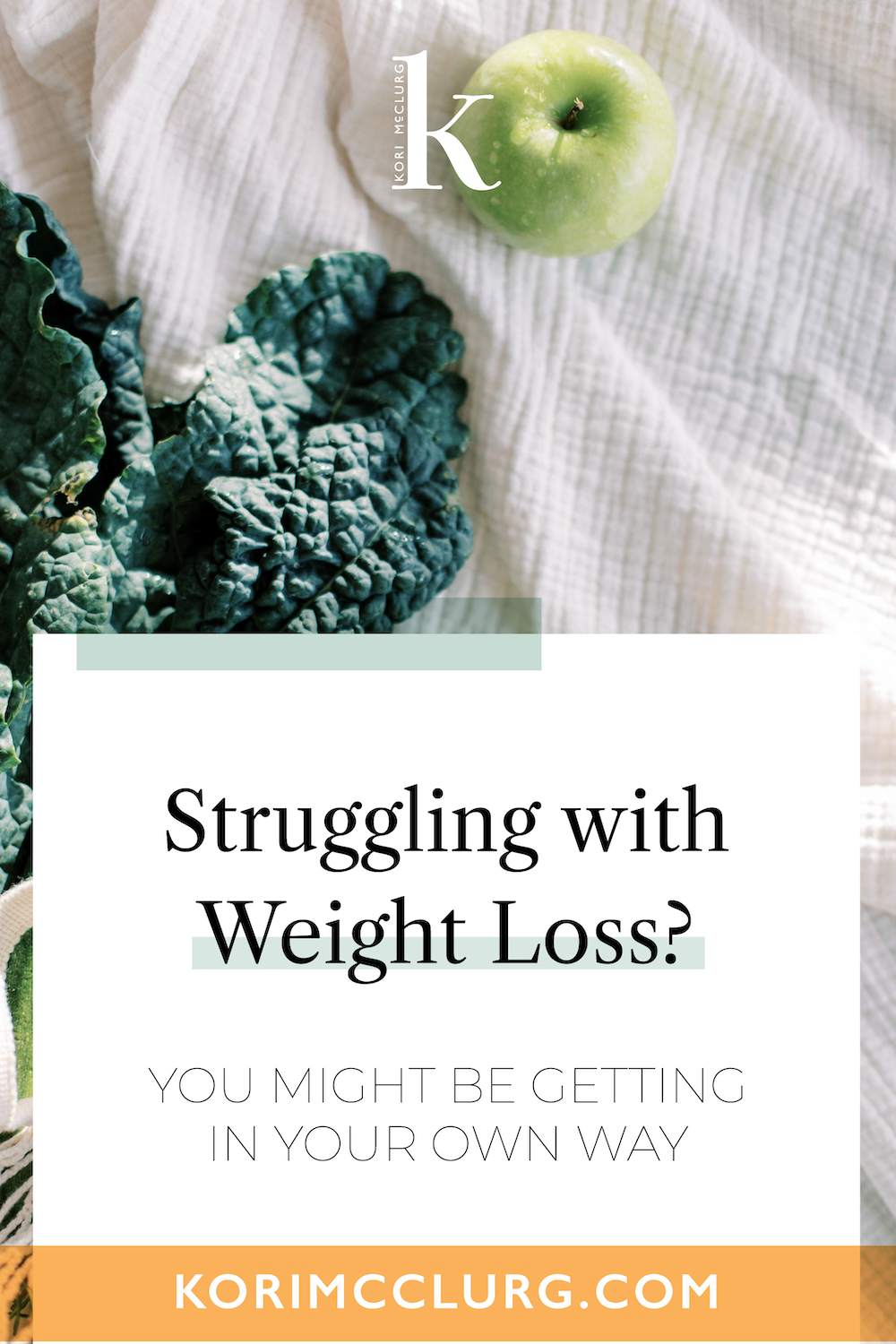
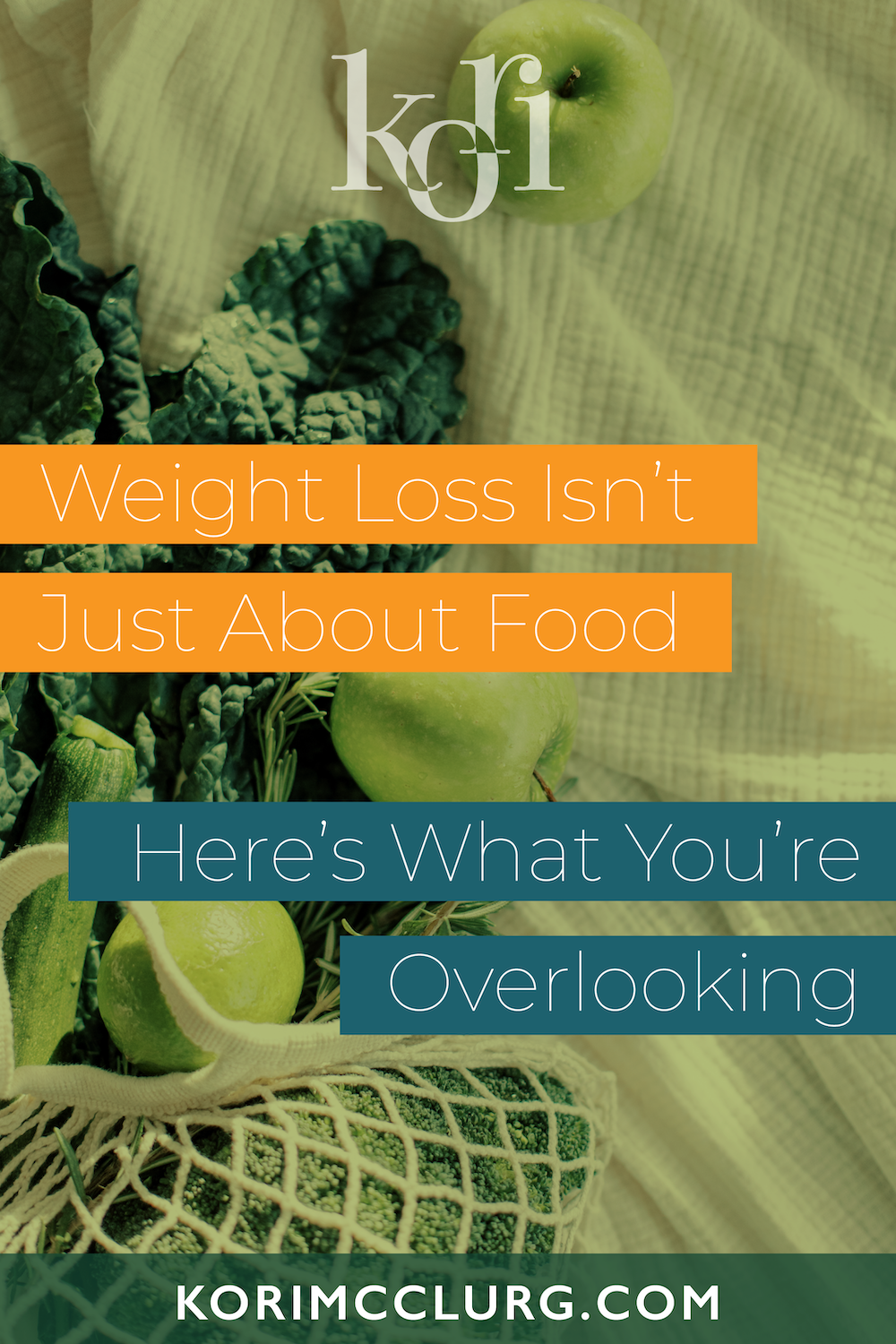
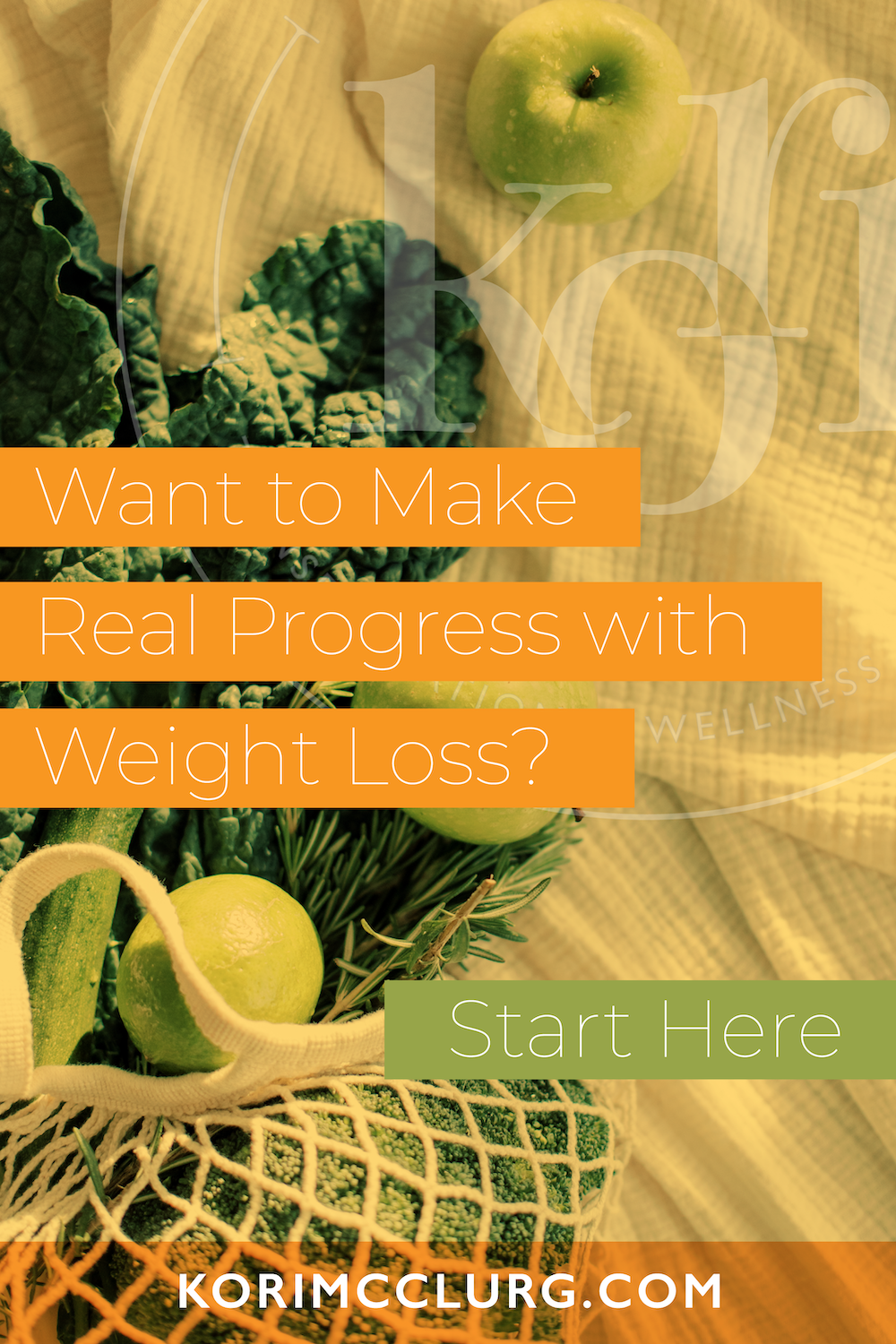
March 27, 2025
All content ©Kori McClurg 2025
Branding & Site Design by Moriah Riona Branding
All content ©Kori McClurg 2025